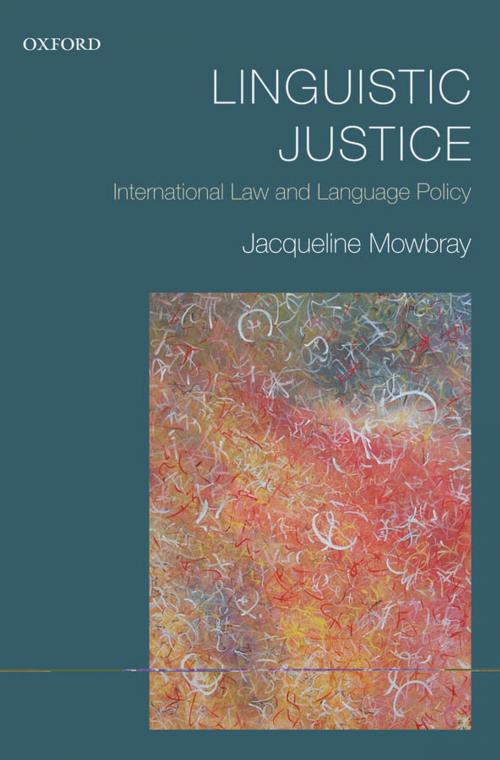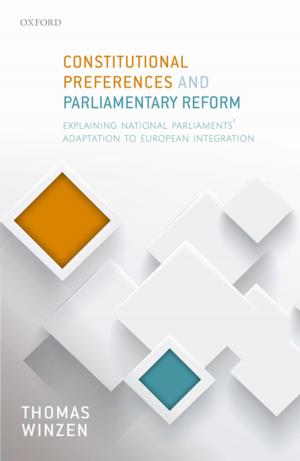Linguistic Justice
International Law and Language Policy
Nonfiction, Reference & Language, Law, Language Arts, Social & Cultural Studies, Social Science| Author: | Jacqueline Mowbray | ISBN: | 9780191639722 |
| Publisher: | OUP Oxford | Publication: | October 25, 2012 |
| Imprint: | OUP Oxford | Language: | English |
| Author: | Jacqueline Mowbray |
| ISBN: | 9780191639722 |
| Publisher: | OUP Oxford |
| Publication: | October 25, 2012 |
| Imprint: | OUP Oxford |
| Language: | English |
Globalization and migration are producing societies of increasing linguistic diversity. At the same time, English is achieving unprecedented global dominance, smaller languages are becoming 'extinct' at an alarming rate, and ethnic tensions in countries from Belgium to Tibet continue to centre on questions of language. Against this background, the issue of how to ensure justice between speakers of different languages becomes a pressing social concern. Matters of 'linguistic justice' are therefore drawing increasing scholarly attention across a range of disciplines. How does international law contribute to linguistic justice? This book explores that question by conducting a comprehensive, interdisciplinary examination of international law on language, analysing the many disparate fields of international law which affect language use both directly (human rights, cultural heritage laws, and EU legislation, for example) and indirectly (international trade law and international labour standards, among others). Moving beyond the technical analysis of legal provisions, the book explores the conceptual framework which underpins international law on language, unearthing underlying assumptions and ideas about what constitutes a 'just' language policy from a legal perspective. In doing so, the book draws on the methodology of sociologist Pierre Bourdieu, whose ideas of 'habitus' and 'field' offer a way of understanding the changing significance of language to human identity, and the way in which language becomes a focal point for the exercise of social power. This analysis reveals the limitations of contemporary international law on language, and charts a course towards the achievement of greater 'linguistic justice'.
Globalization and migration are producing societies of increasing linguistic diversity. At the same time, English is achieving unprecedented global dominance, smaller languages are becoming 'extinct' at an alarming rate, and ethnic tensions in countries from Belgium to Tibet continue to centre on questions of language. Against this background, the issue of how to ensure justice between speakers of different languages becomes a pressing social concern. Matters of 'linguistic justice' are therefore drawing increasing scholarly attention across a range of disciplines. How does international law contribute to linguistic justice? This book explores that question by conducting a comprehensive, interdisciplinary examination of international law on language, analysing the many disparate fields of international law which affect language use both directly (human rights, cultural heritage laws, and EU legislation, for example) and indirectly (international trade law and international labour standards, among others). Moving beyond the technical analysis of legal provisions, the book explores the conceptual framework which underpins international law on language, unearthing underlying assumptions and ideas about what constitutes a 'just' language policy from a legal perspective. In doing so, the book draws on the methodology of sociologist Pierre Bourdieu, whose ideas of 'habitus' and 'field' offer a way of understanding the changing significance of language to human identity, and the way in which language becomes a focal point for the exercise of social power. This analysis reveals the limitations of contemporary international law on language, and charts a course towards the achievement of greater 'linguistic justice'.















